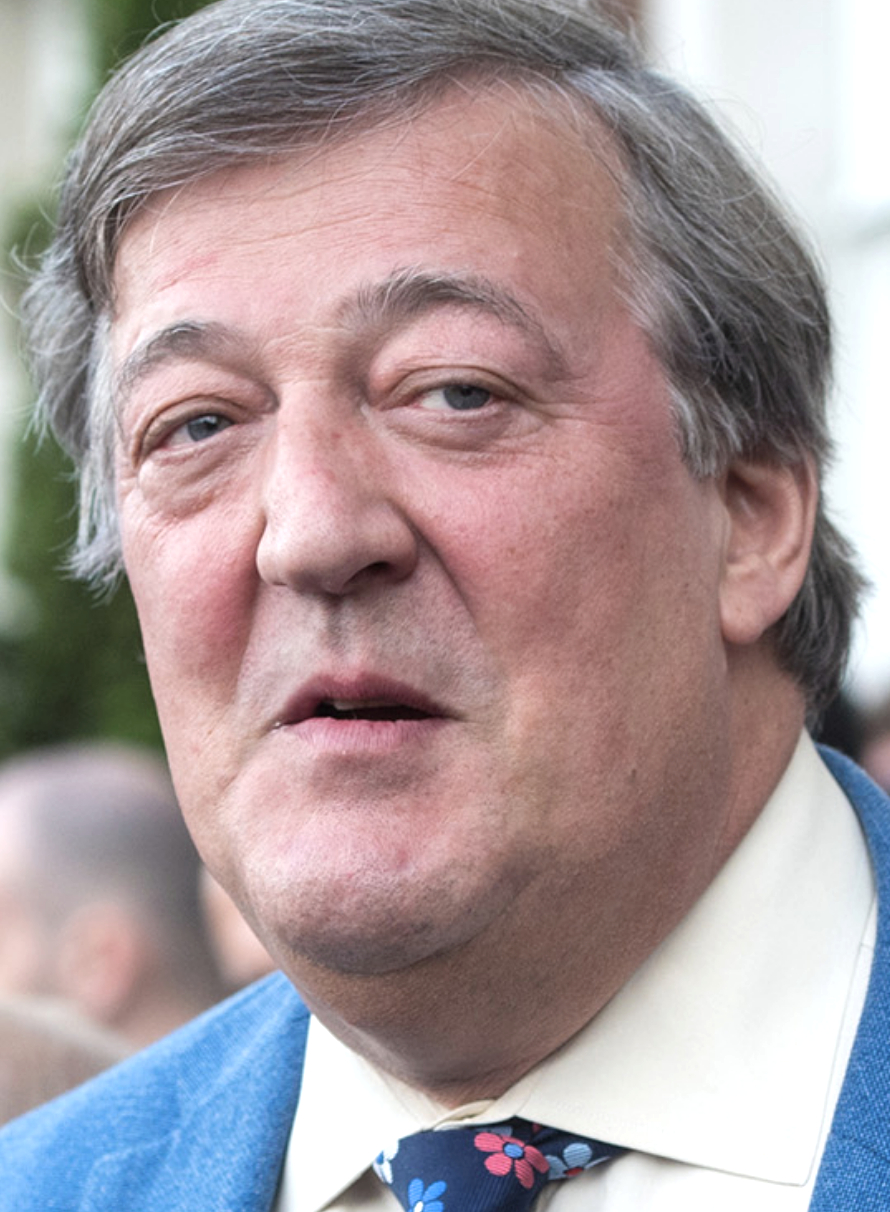On this date in 1957, Stephen Fry was born in London, England. He grew up in Norfolk. At age 17, after leaving school, he was convicted of credit card fraud. After serving time in prison, Fry studied at City College Norfolk with the intention of sitting entrance exams for Cambridge, where he received a scholarship. At Cambridge, he performed in the Cambridge Footlights Review with Emma Thompson and Hugh Laurie.
Fry and Laurie continued their comedic collaboration outside of school, including the sketch comedy show “A Bit of Fry and Laurie,” for the BBC, which had six seasons between 1986 and 1995. From 1990 to 1993, Fry and Laurie also starred in “Jeeves and Wooster” (Fry played Jeeves). Fry has had a wide-ranging career in acting, comedy and writing.
He is very active in social media, preferring to speak directly to his fans whenever he can, such as through Twitter and on his personal website. In 2003 Fry began hosting the BBC television panel comedy game show “QI.” Fry has been openly gay for his entire professional life and advocates for gay rights. He grew up in an atheist home but had a brief flirtation with Christianity as a teen after reading C.S. Lewis’s Screwtape Letters and works by G.K. Chesterton.
But as an adult he returned to atheism and is very open about his nonbelief, describing the Christian God as “utterly evil, capricious and monstrous” in an interview with The Guardian in February 2015.
In 2011 he received a Lifetime Achievement Award in Cultural Humanism from the Humanist Chaplaincy at Harvard and the American Humanist Association. In February 2015, Fry stated on the Irish television show “The Meaning of Life,” “Why should I respect a capricious, mean-minded, stupid God who creates a world which is so full of injustice and pain?”
Asked how he would react if he was locked outside the pearly gates, he responded, “I would say, ‘Bone cancer in children? What’s that about?’ Because the God who created this universe, if it was created by God, is quite clearly a maniac, utter maniac. Totally selfish. We have to spend our life on our knees thanking him? What kind of God would do that?”
After a viewer made a formal complaint in 2017, police in the Republic of Ireland started prosecution charges for blasphemy against him, invoking Ireland’s controversial new Defamation Act, which made blasphemy punishable by a fine of 25,000 euros. After the announcement set up an international outcry, the prosecution was dropped, ironically because, it was stated, that “there were no injured parties.” Nearly 65% of voters voted in 2018 to repeal the blasphemy law.
PHOTO: Fry in 2016; U.S. State Department photo


